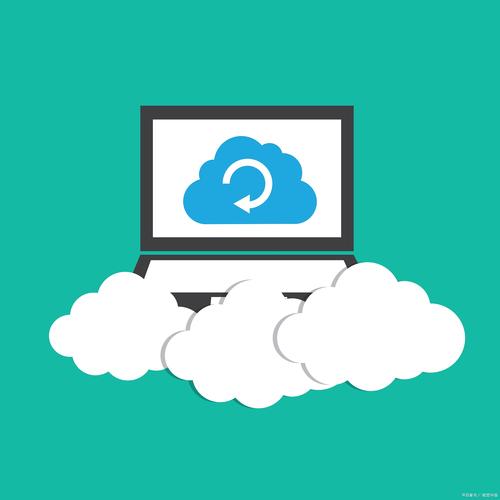云核算 英文,Introduction to Cloud Computing
云核算在英文中被称为 Cloud Computing。
Introduction to Cloud Computing
Cloud computing has revolutionized the way businesses and individuals access and manage data and applications. It refers to the delivery of computing services over the internet, allowing users to access resources such as servers, storage, databases, networking, software, analytics, and intelligence on-demand. This article delves into the basics of cloud computing, its benefits, challenges, and the future of this transformative technology.
What is Cloud Computing?
Cloud computing is built on the concept of virtualization, where the physical resources are abstracted and presented as logical resources. This allows for greater flexibility, scalability, and efficiency in managing IT infrastructure. The cloud can be categorized into three main types: public, private, and hybrid clouds.
Public Cloud

Public clouds are owned and operated by third-party service providers, such as Amazon Web Services (AWS), Microsoft Azure, and Google Cloud Platform. These clouds offer services to a wide range of customers over the internet. Public clouds are cost-effective, as users only pay for the resources they consume, and they provide high scalability and reliability.
Private Cloud

Private clouds are dedicated to a single organization and can be hosted on-premises or by a third-party provider. They offer more control and security, as the infrastructure is not shared with other organizations. Private clouds are suitable for businesses with specific compliance requirements or those that handle sensitive data.
Hybrid Cloud
Hybrid clouds combine the benefits of both public and private clouds. They allow organizations to leverage the scalability and cost-effectiveness of public clouds while maintaining control over sensitive data and applications in a private cloud environment. This approach provides flexibility and ensures that critical workloads are protected.
Benefits of Cloud Computing
Cloud computing offers numerous benefits, including:
Cost savings: By eliminating the need for physical infrastructure, businesses can reduce capital expenditures and operational costs.
Scalability: Cloud resources can be easily scaled up or down based on demand, allowing businesses to respond quickly to changing requirements.
Reliability: Cloud providers typically offer high availability and disaster recovery solutions, ensuring that services are always accessible.
Flexibility: Users can access cloud services from anywhere, using any device with an internet connection.
Innovation: Cloud computing enables businesses to experiment with new technologies and services without significant upfront investment.
Challenges of Cloud Computing
Despite its benefits, cloud computing also presents several challenges:
Security concerns: Storing data and applications in the cloud raises concerns about data breaches and unauthorized access.
Vendor lock-in: Organizations may become dependent on a specific cloud provider, making it difficult to switch providers or migrate to an on-premises solution.
Complexity: Managing multiple cloud services and integrating them with existing IT infrastructure can be complex and time-consuming.
Compliance and regulatory issues: Businesses must ensure that their cloud services comply with industry regulations and standards.
The Future of Cloud Computing
The future of cloud computing is expected to be characterized by the following trends:
Edge computing: As more devices become connected, edge computing will become increasingly important. This involves processing data closer to the source, reducing latency and bandwidth requirements.
Artificial intelligence and machine learning: Cloud providers will continue to integrate AI and ML services, enabling businesses to leverage advanced analytics and automation.
Hybrid and multi-cloud strategies: Organizations will increasingly adopt hybrid and multi-cloud strategies to optimize performance, cost, and compliance.
Security and privacy: As cyber threats evolve, cloud providers will focus on enhancing security and privacy features to protect customer data.
Conclusion

Cloud computing has become an integral part of the modern IT landscape, offering numerous benefits and opportunities for businesses and individuals. While challenges exist, the continuous advancements in technology and the evolving cloud ecosystem are paving the way for a more efficient, secure, and innovative future.
相关
-
深圳区块链,深圳区块链工业蓬勃开展,立异技能引领职业未来详细阅读

1.开展概略:深圳作为一座具有容纳立异特质的城市,区块链技能在这里敏捷落地并开展。据统计,深圳区块链相关企业数量已挨近4000家。区块链技能在深圳的使用场n...
2024-12-22 4
-
云核算和虚拟化的差异,技能解析与运用场景详细阅读

云核算和虚拟化是两个亲近相关但又有差异的概念,它们在信息技能范畴都有广泛的运用。以下是它们之间的首要差异:1.界说和方针:虚拟化:虚拟化是一种技能,它答应在同一物理硬...
2024-12-22 2
-
city区块链,构建未来才智城市的柱石详细阅读

“City区块链”触及多个方面,包含详细的区块链项目和使用场n愿景:BlockCity的方针是让所有人不再为生计忧愁,经过区块链技能完成愈加公平缓自在的社区经济。2....
2024-12-22 2
-
我的国际开源,自在发明,无限或许详细阅读

《我的国际》是一款十分受欢迎的沙盒游戏,它答应玩家在一个由方块组成的三维国际中自在地探究、制作和生计。这款游戏由瑞典游戏设计师马库斯·佩尔松(别号Notch)开发,开始发布于2...
2024-12-22 3
-
开源集团,立异驱动,引领职业新风尚详细阅读

开源集团是一家建立于2000年的民营企业,首要事务包含现代绿色农业、房地产、酒店和文明工业,构成了“一主两翼”的工业格式。集团主干职工全额持股,活跃承当社会职责,扶贫帮困的要点...
2024-12-22 2
-
开源监控软件,助力企业运维的利器详细阅读

开源监控软件:助力企业运维的利器跟着信息技能的飞速发展,企业对运维监控的需求日益增长。开源监控软件因其成本低、功用强壮、易于扩展等特色,成为了企业运维团队的首选。本文将为您介绍...
2024-12-22 4
-
云核算 英文,Introduction to Cloud Computing详细阅读

云核算在英文中被称为CloudComputing。IntroductiontoCloudComputingCloudcomputinghasrevolution...
2024-12-22 3
-
开源ai,技能同享与立异的未来详细阅读

1.GitHub上的神级AI项目:文章介绍了GitHub上一些免费且功用强壮的AI项目,合适学习和运用。2.2024年最值得测验的8个AI开源大模型:这些开...
2024-12-22 3
-
区块链协作,构建数字经济新生态详细阅读

1.中心企业区块链协作立异渠道:建立布景:由20多家央企联合建议,国家电网电子商务公司牵头,渠道旨在打破区块链核心技能自主立异,推进区块链技能在更广泛范畴的使用。...
2024-12-22 3
-
区块链不或许三角,去中心化、安全性与可扩展性的权衡之道详细阅读

区块链不或许三角(BlockchainTrilemma)是指区块链体系在去中心化、安全性和可扩展性三个维度上难以一起到达最优状况,一般只能挑选其间两个维度进行优化,而献身第三...
2024-12-22 2
